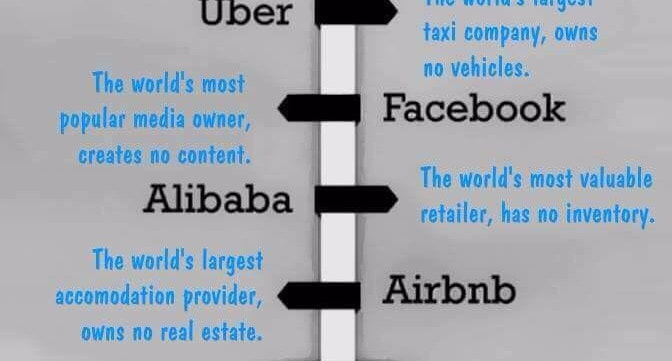Introduction The purpose of this article is
CryptocurrencyA cryptocurrency is a medium of exchange like the USD, AUD, CAD etc but designed for the purpose of exchanging digital information through a process made possible by certain principles of cryptography. Cryptography is used to secure the transactions and to control the creation of new coins. The first cryptocurrency to be created was Bitcoin back in 2009. Today there are hundreds of other cryptocurrencies, often referred to as Altcoins. Put another way, cryptocurrency is digital currency. Unlike centralized banking, like the Federal Reserve System, where governments control the value of a currency through the process of printing fiat money, governments (or indeed any single or group of individuals or organisations) have no control over cryptocurrencies as they are fully decentralized. Most cryptocurrencies are designed to decrease in production over time like Bitcoin, which creates a market cap on them. That’s different from fiat currencies where financial institutions can always create more, hence inflation. Bitcoin will never have more than 21 million coins in circulation. The technical system on which all cryptocurrencies are based on was created by Satoshi Nakamoto (a pseudonym) While hundreds of different cryptocurrency specifications exist, most are derived from one of two protocols; Proof-of-work or Proof-of-stake. All cryptocurrencies are maintained by a community of cryptocurrency miners who are members of the general public that have set up their computers or ASIC machines to participate in the validation and processing of transactions. What problems do Cryptocurrencies solve?Before we launch into cryptocurrencies - it's important to briefly understand what problem (s) they actually solve! Principally, there are 2 key problems
Once there is understanding of the problems this trust causes, it is easy to see how cryptocurrencies remove these risk almost completely from commerce making transaction costs cheaper and accurate and the medium of to maintain value. To get to that, it is important to understand what really is currency, what is a bank, what is a government and what has all that to do with Faith or Trust? We do apologies in advance about the level of complexities in the concepts discussed. Given the brief scope of the article, the readers are expected to at least have an awareness of the existence and types of cryptocurrencies. CurrencyA currency is a physical note and coin issued by the government of a particular country as a medium of exchange to facilitate commerce and to some extent store of value in terms of purchasing power. It is a promissory note in which the issuer (the government) promises to give to the holder value in the denomination of that note! These are also called "Fiat Currencies" as they are created and backed solely by trust (or faith) in a integrity of the government that it will actually be able to deliver the promised value when it is presented by the holder. Bank A bank is an organisation that the people "trust" to
ProblemAs discussed in the introduction above, the key problem is Trust (or faith)
GoldProblem 1) wouldn't exit if the governments' ability to print currency (& therefore its promise) is backed up by inherent value holdings (eg in gold as in the olden days - called the Gold Standard)! Gold doesn’t inflate / deflate like fiat currencies do. Given its limited supply, it is guaranteed to hold its value. Things tend to cost the same in gold over long periods of time. In fact, 2,000 years ago, Roman centurions were paid about 38.58 ounces of gold per year. In US dollars today, this comes out to about $48,350. The base salary of a captain in the US army today comes out to just about the same at $48,500. This makes gold a much better store of value than fiat currency! You don’t have to trust anyone to trust that your gold will retain its value relatively well across the sands of time. The problem with gold though, is its' use as a medium of exchange! It is hardly practical to carry gold around and shaving the exact weight required for a cup of coffee or a taxi / bus ride or perhaps a dress or to transfer value over long distances. This precise problem drove the development of fiat currencies! How does Cryptocurrency solve the above problems?Cryptocurrencies solve both issues! Given the Gold analogy, a cryptocurrency is "Digital" gold so much so that its' extraction is even called mining! It is
As a business, what do you need to get setup to transact in cryptocurrencies?Well, generally speaking, as a business, in principle, you need to do the following steps to get setup up to transact in cryptocurrencies.
The complications arise in accounting & reporting for these transactions! Given they the sender and recipient are virtually anonymous on the decentralised records, their reporting becomes very complex. Recognition of whether a transaction is on revenue account (resulting in tax obligations) or capital account (Loans and advances) add further complications. Regulators are yet to catch up and understand the fundamental nature of cryptocurrencies. All their systems & understanding are based on traceability to sender / receiver and purpose as there is an audit trail of every transaction. Sooner or later regulations will come and if you're keen to stay on the right side of these, please come see us so we can configure your accounting systems and train accountants / business owners to deal with digital wallets. Aside from reporting end, at the business process level the application of blockchain technology is ushering in B2B connectivity at the General Ledger / Accounts Payable / Accounts Receivable / Stock / Fixed assets levels where creditor bills & debtor invoices and there subsequent settlement will happen at the accounting systems level without the need for duplication or time delays! If you need to know more about where the technology is headed - please check out : https://request.network/assets/pdf/request_whitepaper.pdf. What are the tax implications (as at the date of writing this article)?Cryptocurrencies are both a store of value (like gold) and a medium of exchange (like a $) and that itself creates a host of tax issues - one for settling transactions and then valuing the Bitcoins as there are literally hundreds of exchanges all over the world matching buyers and sellers! There is no official guidance from the IRD in relation to cryptocurrencies. Type in cryptocurrencies, Bitcoin, Ethereum, Dash, Ripple and so on, in the search box and you get absolutely nothing. We tried to connect with our account managers at the IRD and similar response! Without specific guidance from the IRD, for now we cannot imagine the treatment of cryptocurrencies to be any different from existing systems to measure & report transactions made in foreign currencies and foreign currency holdings. If a NZD transaction is settled in a fiat currency, we'd use one of the options (transaction date rate, rolling averages, mid-month rates etc.) to record settlement (& consequent profit or loss). Thereafter, we would revalue the holdings of foreign fiat-currencies at reporting dates based on rates published by the IRD - with the translation loss or gain being tax deductible or taxable as the case maybe. When it comes to Altcoins, there are literally hundreds of exchanges in the world where these are traded and a trader / holder is free to trade on any exchange without any artificial encumbrances at all! Transactions in Altcoins will pretty much follow the same methodology except that, in the absence of any publications from the IRD, we think using the closing period end value from a few prominent exchanges should do the trick as along as the same exchange is used every period end. It is important to note that there is no law or rule about it yet but we believe that this would be the position most easy to defend! Key message The key message here is that regardless of the simplicity of the concepts, its often not so simple to get setup for cryptocurrency payment gateways, link them to the general ledger integrations and work the taxable profits and losses from such transactions. We do recommend you contact us so we can discuss the details & specifics to your case before advising on the appropriate methodology going forward. Disclaimer
The above publication discusses business issues generally and is not intended to be specific advice. Whilst every effort has been made to provide valuable, useful information, Core Business Services Ltd, any related suppliers, associated companies & practices accept no responsibility or any form of liability from reliance upon or the use of its contents. Any suggestions should be considered carefully within your own particular circumstances, as they are intended as general information only. Please do consult with your advisor or call this firm for information / advise specific to your circumstances before finalising any particular course of action.
0 Comments
|
AuthorCORE Business Services Archives
September 2021
Categories |


 RSS Feed
RSS Feed